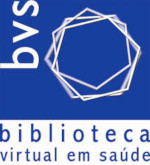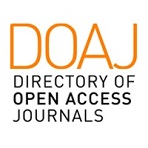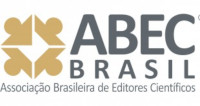CREATIVIDAD Y ESPONTANEIDAD EN LA TEOR A DEL PROCESO DE APRENDIZAJE DE PODER COMUNITARIO
Palabras clave:
Pedagogía, Espontaneidad, Creatividad, AdultosResumen
En este artículo se introduce el estudio del proceso de aprendizaje del poder comunitario. El objetivo del estudio era construir una concepción y una teoría sustantiva del aprendizaje grupal de estudiantes adultos. La teoría dialoga con tres perspectivas: andragogía, sociometría y neurociencia. El proceso de aprendizaje del poder de la comunidad crea una conexión cercana con los enfoques morenianos del uso de la sociometría, el apoyo de pares, la espontaneidad y la creatividad en un proceso de aprendizaje grupal. La espontaneidad y la creatividad se consideran una parte esencial del aprendizaje grupal de adultos. Se encontraron cuatro categorías principales: participación, comunalidad, creatividad y tutoría. La categoría principal se identificó como el proceso de aprendizaje de poder comunitario. Este estudio se ha llevado a cabo utilizando la metodología de investigación de teoría fundamentada.
Descargas
Citas
Brookfield, S. (1987). Learning democracy: Eduard Lindeman on adult education and social change. Croom Helm.
Damasio, A. (2000). Tapahtumisen tunne: Miten tietoisuus syntyy. Hakapaino.
Forsyth, D. R. (2016). College teaching: Practical insights from the science of teaching and learning. Professor’s guide to teaching. (2nd ed). American Psychological Association.
Gallese, V. (2004). The manifold nature of interpersonal relations: The quest for a common mechanism. In C. D. Frith & D. M. Wolpert (Eds.), The neuroscience of social interaction: Decoding, imitating, and influencing the actions of others (pp. 160-182). Oxford University Press.
Giacomucci, S. (2021). Social Work, sociometry, and psychodrama: Experiential Approaches for group therapists, community leaders, and social workers. Springer.
Glaser, B. G. (1978). Theoretical sensitivity: Advances in the methodology of grounded theory. Sociology Press.
Glaser, B. G. (1992). Basics of grounded theory analysis. Sociology Press.
Glaser, B. G., & Strauss, A. L. (2008). The discovery of grounded theory: Strategies for qualitative research. (3rd ed). Aldline Transaction.
Iacoboni, M. (2008). Ihmisten peilaus: Kytkeytymisemme uusi tiede. Hakapaino.
Immordino-Yang, M. H., & Damasio, A. (2007). We feel, therefore we learn: The relevance of affective and social neuroscience to education. Mind, brain, and education, 1(1), 3-10. https://doi.org/10.1111/j.1751-228X.2007.00004.x
Immordino-Yang, M. H. (2008). The smoke around mirror neurons: Goals as sociocultural and emotional organizers of perception and action in learning. Mind, brain and education, 2(2), 67-73. https://doi.org/10.1111/j.1751-228X.2008.00034.x
Jarvis, P. (2010). Adult education and lifelong learning: Theory and practice. Routledge.
Leppänen, T. (2018). Yhteisövoimainen oppimisprosessi: Substantiivinen teoria aikuisten ryhmässä oppimisen kokemuksista. [PhD thesis] Jyväskylän yliopisto, Jyväskylä.
Lindeman, E. C. (1921). The Community: An introduction to the study of community leadership and organization. Association Press.
Lindeman, E. C. (1926). The Meaning of Adult Education. New Republic, Inc.
Lindeman, E. C. (1932). Goals and methods of adult education. In S. Brookfield (1987), Learning Democracy: Eduard Lindeman on adult education and social change (pp. 39-42). Croom Helm.
Lindeman, E. C. (1935). The place of discussion in the learning process. In S. Brookfield (1987). Learning Democracy: Eduard Lindeman on adult education and social change (pp. 43-47). Croom Helm.
Maya, J., & Maravel, J. (2020). Teaching-Learning Processes: Application of Educational Psychodrama in the University Setting. International Journal of Environmental Research and Public Health, 17(11), 3922. https://doi.org/10.3390/ijerph17113922
Merriam, S. B., & Bierema, L. L. (2013). Adult learning: Linking theory and practice. Jossey-Bass.
Moreno, J. L. (1934). The sociometric test. In J. Fox (Ed.) (1987), The essential Moreno: Writings on psychodrama, group method and spontaneity by J. L. Moreno (pp. 102-112). Springer.
Moreno, J. L. (1946). Psychodrama (Vol. 1). Beacon.
Moreno, J. L. (1978). Who shall survive? Foundations of sociometry, group psychotherapy and sociodrama (3rd ed.). Beacon.
Propper, H. (2003). Psychodrama as experiential education: Exploring literature and enhancing a cooperative learning environment. In J. Gershoni (Ed.), Psychodrama in the 21st century (pp. 229-248). Springer Publishing Company.
Rachal, J. R. (2002). Andragogy’s detectives: A critique of the present and a proposal for the future. Adult Education Quarterly, 52(3), 210-227. https://doi.org/10.1177/0741713602052003004
Taylor, B., & Kroth, M. (2009). Andragogy’s transition into the future: Meta-analysisi of andragogy and its search for a measurable instument. Journal of Adult Education, 38(1), 1-11.
Zhou, J. (2012). The effects of reciprocal imitation on teacher–student relationships and student learning outcomes. Mind, Brain and Education, 6(2), 66-67. https://doi.org/10.1111/j.1751228X.2012.01140.x







2.jpg)




